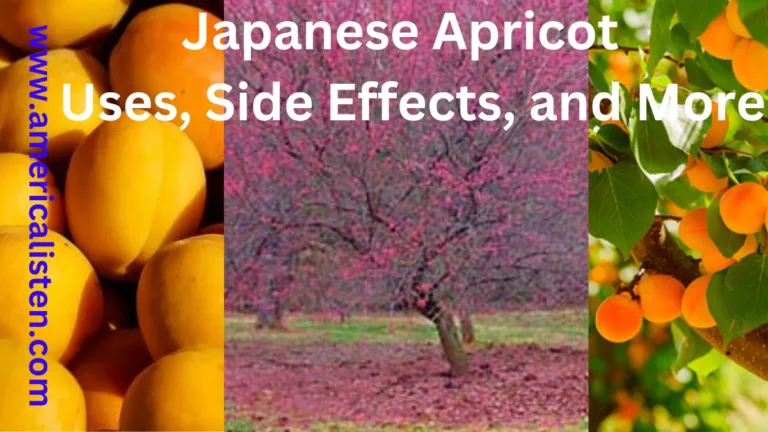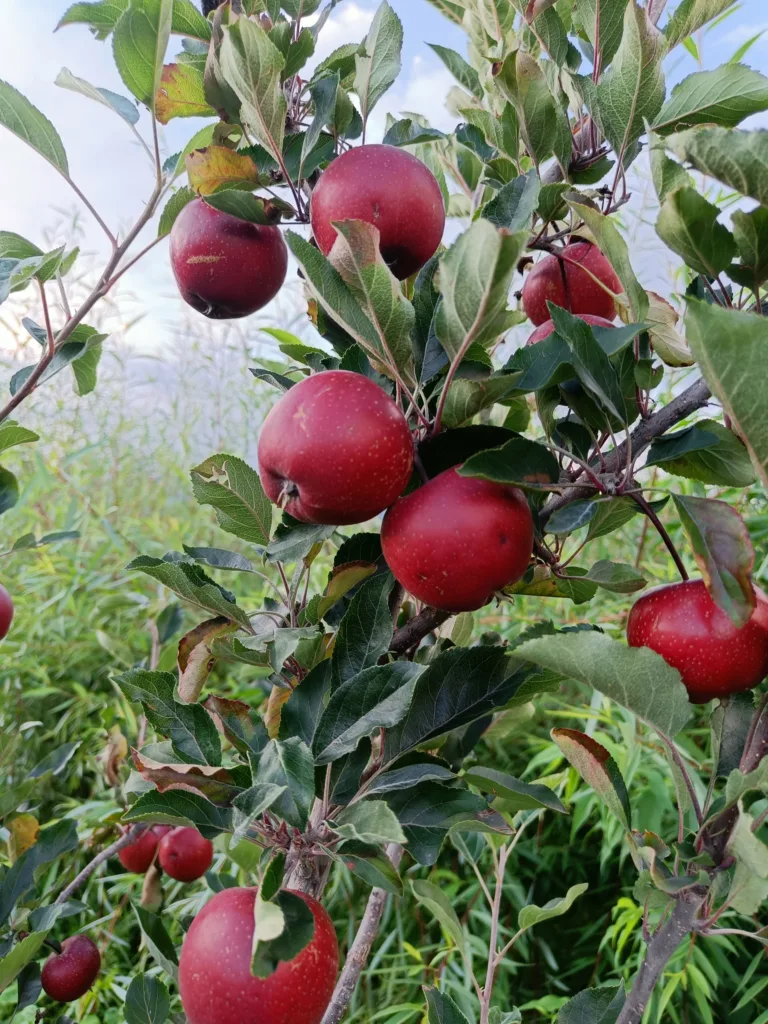Pomegranate Power: Discover the Ancient Superfruit’s Health Benefits, Winter Wonders, and Surprising Side Effects!
The pomegranate, scientifically known as Punica granatum, is a captivating and ancient fruit that has delighted palates and held symbolic significance throughout various cultures for centuries. Believed to have originated in the region encompassing modern-day Iran, the pomegranate has traversed time and geography, earning its place as a revered fruit in numerous mythologies, religious texts, and culinary traditions.

Characterized by its distinctive round shape and vibrant red hue, the pomegranate is renowned for its jewel-like seeds encased in a tough, leathery rind. Bursting with a unique blend of sweet and tart flavors, these ruby-red seeds, also known as arils, contribute not only to the fruit’s delectable taste but also to its rich nutritional profile. Pomegranates are laden with antioxidants, vitamins, and minerals, making them not only a flavorful addition to various culinary creations but also a health-conscious choice.
To know more about Pomegranates please click HERE
Beyond its culinary allure, the pomegranate has embedded itself in cultural and historical narratives, often symbolizing fertility, prosperity, and rebirth. From ancient mythologies to religious texts, the pomegranate’s symbolism is diverse and widespread. As we explore the multifaceted facets of this captivating fruit, we uncover not only its culinary versatility but also the cultural tapestry it has woven across civilizations, making the pomegranate a fascinating and enduring symbol in the world of fruits.
Pomegranates are characterized by a unique set of features that contribute to their distinctive appearance, flavor, and nutritional value. Here are some key characteristics of the pomegranate:
- Appearance:
- The pomegranate is typically a round or slightly hexagonal fruit.
- Its outer skin, or rind, is thick and leathery, ranging in color from yellow to deep red, depending on the variety.
- The inner fruit is divided into compartments called arils, each containing a juicy seed.
- Arils:
- The edible part of this fruit consists of the juicy, seed-like structures called arils.
- Arils are typically translucent and range in color from white to deep red, depending on the variety.
- Pomegranates are known for the burst of flavor and juice encapsulated within each aril.
- Flavor Profile:
- offer a unique combination of sweet and tart flavors.
- The arils are juicy and can vary in sweetness, providing a refreshing and palate-pleasing experience.
- Nutritional Content:
- Pomegranates are rich in antioxidants, particularly punicalagins and anthocyanins, which contribute to their potential health benefits.
- They are a good source of vitamin C, potassium, and dietary fiber.
- Culinary Versatility:
- This is used in a variety of culinary applications, including salads, desserts, sauces, and beverages.
- Pomegranate juice is a popular ingredient in both sweet and savory dishes, adding a unique flavor and vibrant color.
- Symbolic Significance:
- Pomegranates hold symbolic value in various cultures and religions, often representing fertility, abundance, and prosperity.
- In some traditions, the pomegranate is considered a symbol of life and regeneration.
- Cultivation:
- These trees are well-adapted to arid and semi-arid climates.
- They are cultivated in regions with warm temperatures and well-drained soil.
- Longevity:
- These trees can have a long lifespan, often living for several decades.
- The fruit has a relatively long shelf life and can be stored for several weeks when refrigerated.
In summary, the pomegranate is a unique and versatile fruit with a rich history, cultural significance, and a range of characteristics that make it both a culinary delight and a symbol with enduring appeal.
Pomegranates are not only a delicious and refreshing fruit but also offer a variety of potential health benefits, thanks to their rich nutritional profile and bioactive compounds. While individual responses to dietary components can vary, here are some commonly recognized health benefits associated with consuming pomegranates:
- Rich in Antioxidants:
- loaded with antioxidants, including punicalagins and anthocyanins, which help neutralize free radicals in the body. This antioxidant activity may contribute to a reduced risk of chronic diseases.
- Heart Health:
- Pomegranates may have a positive impact on heart health by improving cholesterol levels. Studies suggest that the antioxidants in pomegranates may help lower bad cholesterol (LDL) and increase good cholesterol (HDL), potentially reducing the risk of heart disease.
- Blood Pressure Regulation:
- Some research indicates that regular consumption of pomegranate juice may help lower blood pressure. The antioxidants and polyphenols in pomegranates are thought to contribute to improved vascular function.
- Anti-Inflammatory Properties:
- Pomegranates contain compounds with anti-inflammatory effects, which may be beneficial in reducing inflammation in the body. Chronic inflammation is associated with various health conditions, including heart disease and arthritis.
- Cancer Prevention:
- Preliminary studies suggest that pomegranates may have anti-cancer properties. The antioxidants in pomegranates may help inhibit the growth of cancer cells and reduce the risk of certain types of cancer, particularly breast and prostate cancers.
- Joint Health:
- The anti-inflammatory properties of pomegranates may contribute to joint health by reducing symptoms of arthritis and promoting overall joint function.
- Improved Memory and Cognitive Function:
- Some research suggests that pomegranates may have neuroprotective effects, potentially improving memory and cognitive function. The antioxidants in pomegranates may help protect the brain from oxidative stress.
- Digestive Health:
- This Fruit is a good source of dietary fiber, which supports digestive health by promoting regular bowel movements and preventing constipation.
- Diabetes Management:
- Some studies suggest that pomegranates may have a positive impact on blood sugar levels, making them potentially beneficial for individuals with diabetes. However, more research is needed in this area.
- Antimicrobial Properties:
- Pomegranates may exhibit antimicrobial properties, which could contribute to fighting certain bacterial and fungal infections.
It’s important to note that while pomegranates offer numerous potential health benefits, individual responses can vary, and it’s advisable to incorporate a variety of fruits and vegetables into a balanced diet for overall health. If you have specific health concerns or conditions, it’s recommended to consult with a healthcare professional for personalized advice.
Eating seasonally and incorporating specific foods into your diet during winter can offer various benefits that align with the seasonal changes and the body’s needs. Here are several reasons why it’s beneficial to eat certain foods during the winter months:
- Nutrient Density:
- Many winter fruits and vegetables are rich in essential nutrients, providing the body with the vitamins, minerals, and antioxidants it needs to stay healthy. Examples include citrus fruits, pomegranates, sweet potatoes, and dark leafy greens.
- Immune Support:
- Winter is often associated with an increased prevalence of colds and flu. Consuming foods rich in vitamin C, such as citrus fruits and berries, can support the immune system and help fend off illnesses.
- Hydration:
- While the weather may be colder, indoor heating systems can contribute to dry indoor environments. Eating foods with high water content, like soups, stews, and winter fruits, can contribute to overall hydration and support skin health.
- Seasonal Variety:
- Embracing seasonal foods introduces variety into your diet and ensures that you consume a diverse range of nutrients. Seasonal eating can also be more environmentally sustainable as it often involves locally sourced produce.
- Energy and Satiety:
- Winter foods, such as root vegetables and hearty grains, tend to be more filling and provide sustained energy. This can be particularly beneficial during colder months when the body may naturally seek more substantial and warming foods.
- Comfort and Warmth:
- Winter foods often include comfort foods like soups, stews, and casseroles. These meals not only provide physical warmth but can also offer a sense of emotional comfort during the colder, darker days.
- Blood Circulation:
- Certain winter spices, such as cinnamon and ginger, are believed to have warming properties and may promote improved blood circulation. Including these spices in your diet can contribute to a sense of warmth from the inside.
- Adaptation to Seasonal Changes:
- Seasonal eating aligns with the body’s natural adaptation to changes in temperature and daylight. Consuming foods that are in sync with the season may support overall well-being and balance.
- Local and Sustainable Choices:
- Opting for seasonal, local produce during winter supports local farmers and reduces the environmental impact associated with transporting food over long distances. It’s a sustainable and environmentally conscious choice.
- Mindful Eating:
- Being mindful of seasonal eating encourages a connection with the environment and fosters an appreciation for the natural rhythms of the seasons. It promotes a holistic approach to wellness that considers both the body and the environment.
By choosing to eat seasonally and incorporating winter-specific foods into your diet, you can optimize your nutrition, support your immune system, and enhance your overall well-being during the colder months.
Using pomegranates in winter can be a delightful and nutritious addition to your seasonal menu. Here are several ways to enjoy pomegranates during the winter months:
- Fresh Pomegranate Seeds:
- One of the simplest ways to enjoy pomegranates is to eat the fresh seeds on their own. Simply cut the pomegranate in half and tap the back with a wooden spoon to release the seeds. Eat them as a snack or add them to salads for a burst of flavor.
- Winter Salads:
- Pomegranate seeds can add a pop of color, sweetness, and juiciness to winter salads. Combine them with hearty greens like kale or spinach, and add nuts, cheese, and a citrus-based dressing for a refreshing and nutritious winter salad.
- Hot and Cold Cereals:
- Sprinkle fresh pomegranate seeds on top of hot oatmeal or cold cereal. The seeds add a crunchy texture and a burst of flavor, enhancing the overall taste of your breakfast.
- Smoothies:
- Incorporate pomegranate seeds or freshly squeezed pomegranate juice into your winter smoothies. Combine them with other winter fruits like citrus, berries, and banana for a nutritious and immune-boosting drink.
- Warm Pomegranate Beverages:
- Create a warm winter beverage by heating pomegranate juice on the stove. Add a cinnamon stick or a slice of orange for extra warmth and flavor. This cozy drink is perfect for chilly winter evenings.
- Pomegranate Sauce:
- Make a sweet and tangy pomegranate sauce that can be drizzled over desserts or used as a glaze for roasted meats. Combine pomegranate juice with a sweetener (like honey or maple syrup) and reduce it on the stove until it reaches a syrupy consistency.
- Winter Cocktails:
- Use pomegranate juice as a base for winter cocktails. Mix it with sparkling water or add it to hot toddies for a festive touch. Garnish with pomegranate seeds for an extra burst of flavor.
- Winter Fruit Parfaits:
- Layer pomegranate seeds with yogurt, granola, and other winter fruits like persimmons or kiwi to create a delicious and visually appealing winter fruit parfait.
- Pomegranate Salsa:
- Combine pomegranate seeds with diced tomatoes, onions, cilantro, and lime juice to create a refreshing pomegranate salsa. This can be served as a topping for grilled chicken or fish.
- Pomegranate Desserts:
- Incorporate pomegranate seeds into winter desserts such as cakes, muffins, or tarts. The seeds add a burst of color and a sweet-tart flavor that complements a variety of baked goods.
Remember to take advantage of the seasonal availability of fresh pomegranates during the winter months to enjoy their unique flavor and nutritional benefits. Whether eaten on their own or incorporated into various dishes, pomegranates can add a touch of vibrancy to your winter culinary experience.
While pomegranates are generally considered safe for most people when consumed in moderation as part of a balanced diet, there are a few considerations regarding potential side effects. It’s essential to note that individual reactions can vary, and it’s advisable to consult with a healthcare professional if you have specific concerns. Here are some potential side effects associated with pomegranate consumption:
- Allergic Reactions:
- Some individuals may be allergic to pomegranates. Allergic reactions can manifest as itching, swelling, hives, or difficulty breathing. If you experience any allergic symptoms after consuming pomegranates, seek medical attention promptly.
- Interaction with Medications:
- Pomegranates and pomegranate juice may interact with certain medications. For example, pomegranate juice can interfere with enzymes responsible for metabolizing medications, potentially increasing or decreasing their effectiveness. If you are taking prescription medications, especially those affected by liver enzymes, consult your healthcare provider before consuming pomegranate products.
- Digestive Issues:
- Some individuals may experience digestive discomfort, such as bloating or diarrhea, after consuming large quantities of pomegranates or pomegranate juice. Moderation is key to avoiding potential gastrointestinal issues.
- Blood Pressure Interactions:
- Pomegranates may have a mild blood pressure-lowering effect. While this can be beneficial for many people, individuals with low blood pressure or those taking medications to lower blood pressure should monitor their levels closely and consult with a healthcare professional.
- Interference with Certain Medical Conditions:
- Individuals with certain medical conditions, such as kidney problems or allergies, may need to exercise caution when consuming pomegranates. It’s important to consult with a healthcare provider to determine whether pomegranates are suitable for your specific health situation.
- High Sugar Content:
- Pomegranates are naturally sweet and contain natural sugars. While the sugar content is not as high as some other fruits, individuals with diabetes or those watching their sugar intake should be mindful of their pomegranate consumption and consider the overall carbohydrate content.
- Staining:
- Pomegranate juice can stain clothing and surfaces due to its rich color. Be cautious when handling pomegranates or extracting the seeds to avoid potential staining.
- Oxalate Content:
- Pomegranates contain oxalates, compounds that can contribute to the formation of kidney stones in susceptible individuals. People with a history of kidney stones may need to moderate their intake of oxalate-containing foods, including pomegranates.
It’s important to incorporate pomegranates into your diet mindfully and be aware of your individual health conditions and potential interactions with medications. If you have concerns or experience adverse effects after consuming pomegranates, seek advice from a healthcare professional for personalized guidance…
YOU MAY LIKE :
2.Why Jewish Activists Bring Traffic to a Halt in Los Angeles? Rallying for Peace in Gaza






